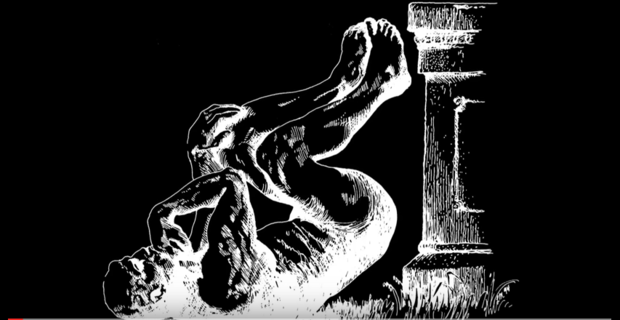Award-winning teen explains Einstein's special theory of relativity (in a way you can actually understand)
Flanked by celebrities including Seth McFarlane, Pharrell Williams and Hilary Swank, Mark Zuckerberg -- along with his wife, Pricilla Chan, Jack Ma, Yuri Milner, Sergey Brin and other collaborators -- handed out $22 million in prizes to esteemed scientists Sunday. The Facebook CEO co-founded the Breakthrough Prize to honor "important, primarily recent" scientific achievements in the fields of physics, life sciences and mathematics that push forward our understanding of the world and inspire the next generation of scientists.
Future scientists like Ohio teen Ryan Chester, a senior at North Royalton High School, who earned $400,000 in scholarships and awards at this year's Breakthroughs for his video called "Some Cool Ways to Understand the Special Theory of Relativity and What It Means About Time."
"I made a film that explains (Albert Einstein's) special theory of relativity, which is a pretty difficult concept to understand based on what it implies about time," 18-year-old Chester said. The goal: Get viewers to understand "why traveling at a very fast speed" -- say, through space -- "can cause you to age more slowly relative to someone on Earth."
The most amazing part? You walk away actually getting it.
"Special relativity has got to rank up there with one of the most revolutionary theories in physics," Chester wrote. "I've seen it referenced in science books and magazines for years. It was always mentioned in relationship to the idea that you can travel forward in time if you just move fast enough. Time dilation has been in science TV shows and movies like "Interstellar" so often that I've just accepted it without understanding why it was true. So when this challenge came around I thought this area was a great one to dig into."
The science whiz with an interest in film uses physical demonstrations and graphic illustrations to explain why time isn't as fixed as we think it is. A traveler zooming through space for decades would come back to find that she has hardly aged a bit compared to her friends and family back on Earth.
We'll let Chester take it from there:
The film major hopeful won a $250,000 scholarship, $50,000 for his AP physics teacher and a $100,000 upgrade for his school's science lab.
The 2016 Breakthrough Prize ceremony was televised live Sunday night on National Geographic Channel. Five researchers were awarded $3 million each for their work in the life sciences, including the development of optogenetics to control neurons with light, and studies to help understand Alzheimer's and cardiovascular disease. Svante Paabo, from the Max Planck Institute for Evolutionary Anthropology, was awarded for his work untangling how Neaderthals have contributed to the DNA makeup of modern humans.
Five fundamental physics teams -- including 2015 Nobel Prize winners Takaaki Kajita and Arthur McDonald -- were awarded $3 million for their work investigating neutrino oscillation, expanding the standard model of particle physics. Ian Agol, of the University of California at Berkeley, won the $3 million mathematics prize.
